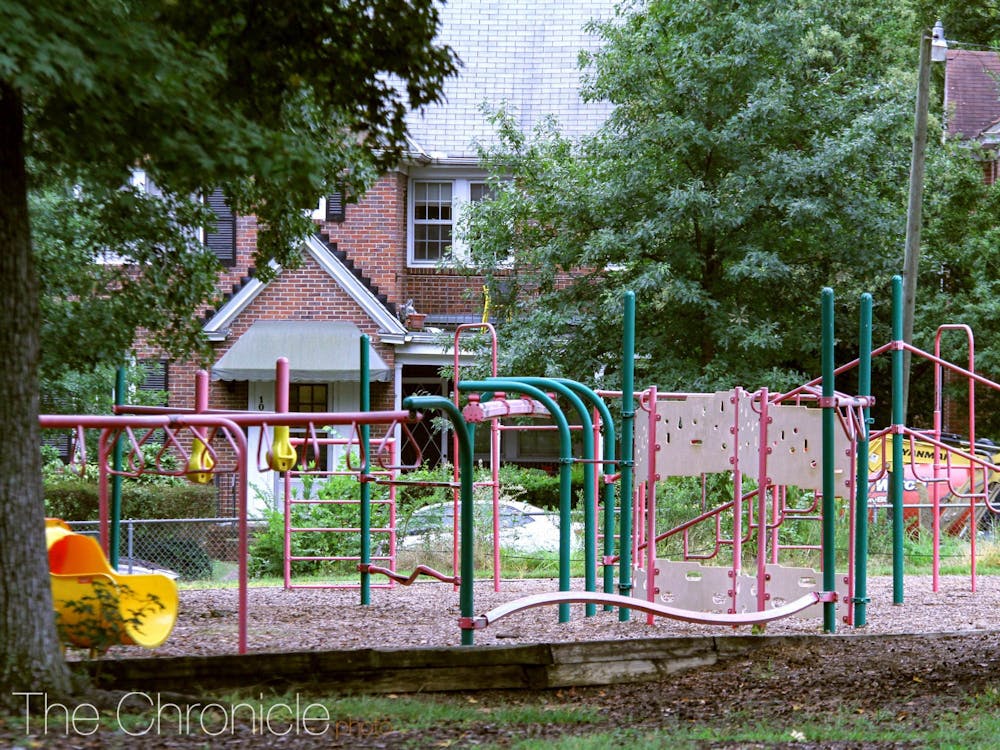Durham Public Schools is ensuring the district’s students are prepared academically and mentally for the upcoming school year with the Operation Summer Learning program.
The initiative consists of two sessions at over two dozen sites. The June session focused on addressing learning loss and filling in gaps caused by online learning from the 2020-21 academic year. The July session is focused on accelerating student learning.
Students also have the opportunity to participate in enrichment activities, like physical education and the arts. Attendance is voluntary and the program is open to any student, space permitting.
Programs like Operation Summer Learning are happening all across North Carolina following Governor Roy Cooper’s February law requiring school districts to offer students in all grades at least 150 hours or 30 days of in-person summer instruction. School districts use federal coronavirus relief funds to run the state-mandated summer programs. The state board has also reserved federal relief aid to help districts cover their costs.
Claude Archer, principal of Shepard IB Magnet Middle School, said that Operation Summer Learning is a great opportunity for students to get reacquainted with the social structures of school that were lost during virtual learning.
“When I went into classrooms on a regular basis, I saw a lot of teaching and direct instruction that was taking place, and I was pleased with the way things had went,” Archer said of the first summer session.
Shepard Middle School was the regional Operation Summer Learning site for students from Shepard and Lowes’ Grove Middle School. During the first session, the site had over 290 students and many classrooms started to reach capacity. Luckily, Shepard had another summer program called the 21st Century Summer School to which Shepard students could transfer.
On the east side of Durham, 136 students have shown up to Neal Middle School’s summer program so far, according to Principal Michael Fuga. Unlike other Durham Public Schools, Neal is hosting only their own students for the summer with the help of additional funding from the state. Their program is called RISE Summer Camp and has the same requirements as Operation Summer Learning.
“We call our [program] summer camp because we want it to sound a little bit more fun,” Fuga said. “[Our students] need more instruction, but they also need to have an enjoyable experience and reconnect with school in a positive way.”
Archer, on the other hand, does not consider Operation Summer Learning to be a summer camp. For him, it’s summer school, as helping students catch up from learning loss is an ambitious task.
“You have to create an environment in which it does not burn staff or students out,” he said. “Some of the things have to be fun and engaging. And I do know that we implemented some of those things. But there were also some very rigorous lessons that were taking place throughout the entire building.”
In addition to core academic classes, the program has hosted enrichment classes like band, where students learned to play drums.
“There were no instruments, but our band teacher did an excellent job of keeping [the students] engaged and excited about learning different things about the drum,” Archer said.
At Neal, every student meets with a social worker and counselor and participates in daily physical activity in addition to academic learning. Neal has also partnered with local organizations such as the Museum of Life and Science, Afro-Peruvian Dance and SwingPals, which works on social emotional skills with students, to provide students with a well-rounded summer “camp” experience.
The daily in-person interaction has allowed teachers and staff to truly assess students’ needs.
“When [students are] there every day, you build that relationship with a kid and a family,” Fuga said.
Neal also invited a Kona Ice truck for its students, another attempt at connecting students with their school.
“Honestly, the Kona Ice truck doesn’t go through the neighborhoods where our kids live,” Fuga said. “Hopefully, when they come back to school [in the fall], they've had such a positive six-week experience with us that they're like, ‘I like my school. I know these teachers care.’”
Archer said that while students who were struggling during the school year were contacted and encouraged to participate, no one was turned away for any of these programs.
Both schools still took necessary precautions against COVID-19 by ensuring all students wore masks. At Shepard, only one bathroom was open per day, which made contact tracing easier, Archer said.
Get The Chronicle straight to your inbox
Sign up for our weekly newsletter. Cancel at any time.
At Neal, although there were no positive COVID-19 cases during the hybrid learning model in the spring, one classroom had to be quarantined during the first session of RISE because a student tested positive. Students were required to quarantine at home for 10 days, Fuga explained.
“It was wild for the kids and teachers to have to go through that. [The pandemic is] still very real,” Fuga said.
Even with the extra precautions taken and the hiccups caused by the virus, both Archer and Fuga said that it’s good to be back learning in person.
“There’s nothing like being able to see kids walk the hallway and kids excited about that sense of normalcy returning,” Archer said.

Katie Tan is a Trinity senior and digital strategy director of The Chronicle's 119th volume. She was previously managing editor for Volume 118.

